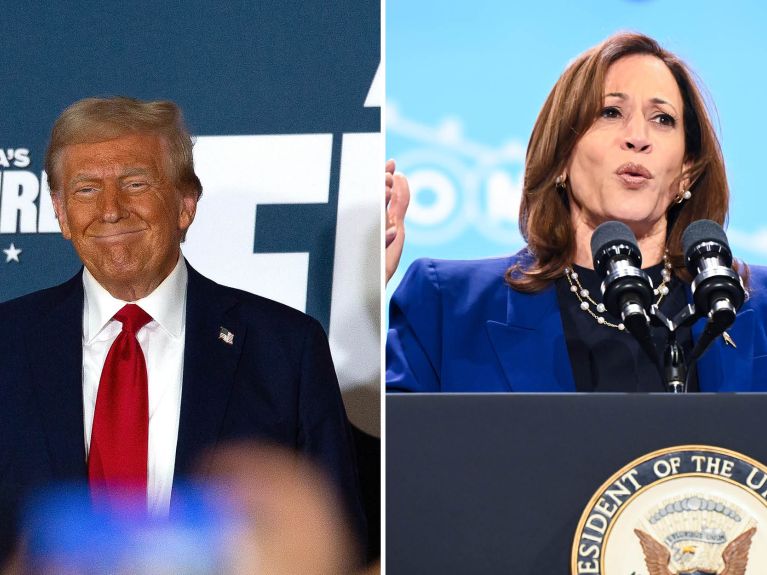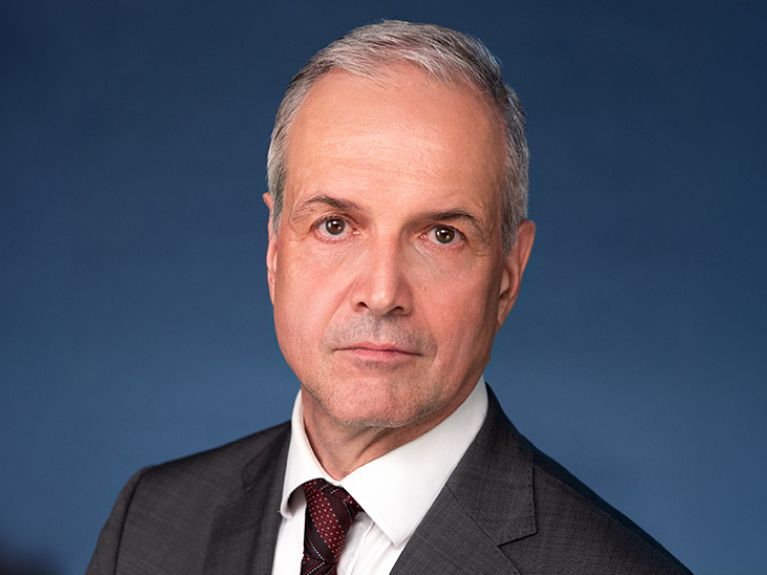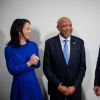“Two fundamentally different models of society”
Expert Michael Werz shows how transatlantic relations might shift in the light of the US presidential election.

Michael Werz is Senior Adviser for North America and Multilateral Affairs at the Munich Security Conference and Senior Fellow at the Center for American Progress in Washington. In this interview he talks about the differences between US presidential candidates Kamala Harris and Donald Trump, the significance of the US election for transatlantic relations, and the changes that are occurring in the areas of foreign policy, development policy and security policy.
Dr. Werz, what choice will Americans be making in the presidential election on 5 November 2024?
The two candidates are not comparable at all. They stand for two models of society which are so fundamentally disparate that even the notion of political polarisation fails to adequately capture the difference between them. Here, it’s not a question of taking a conservative position on the one hand and a progressive one on the other. The declared aim of the Trump camp is the “deconsolidation of the state”, which would involve destroying constitutional traditions and shaking the very foundations of American democracy. This stands in stark contrast with the Democrats’ social-liberal modernisation programme, which seriously pursues the idea of “e pluribus unum” (“out of many, one”) – a deep-seated element of the American tradition.

If Donald Trump breaks with American traditions, how do you see his election impacting on transatlantic relations?
Unfortunately this is almost impossible to predict, but my fear is that in this case the US would become introverted and embroiled in fierce internal social conflict: in terms of foreign policy, it would then be less a matter of concrete positioning and more about America’s departure from the world stage. If the US turns away from its European allies such as Germany as well as from its traditional partners in the Pacific region, there is a risk this will exacerbate the pervasive global disorder we are currently seeing.
What can we expect from Kamala Harris as US President in terms of international relations?
Unlike Donald Trump, we can expect continuity. Kamala Harris is already a member of an administration that recognises the value of international coordination and partnerships. Of course, she can be expected to bring about shifts in emphasis that will be significant for Germany, too. The extent to which the American population is changing – making the US more strongly oriented towards Latin America and Asia – is still something that is very much overlooked in Europe.
Could you explain what you mean by that?
In addition to fostering contacts with the established players and institutions of transatlantic dialogue, Germany has to cultivate much deeper relationships with the emerging minorities in America. With almost 70 million Latinos, the US already has the second largest Spanish-speaking population in the world. By 2050 there will be over 100 million Latinos living in the US, while growth among the Asian American population is even faster in relative terms. This will help align America closer with partners in Latin America and Asia. Europe and the US can act as transatlantic partners here as well, though Germany and other European nations can’t be expected to play a special role from a military point of view in this connection. They can act as transatlantic partners to America in the Pacific region too, however, providing a key policy impetus in the area of the environment, the economy, trade and development, for example – and these are aspects that will certainly come more to the fore under a Harris administration.
Shifts in international relations are the focus of the project “Nexus25 – Shaping Multilateralism”, which you are co-directing. What topics is the project focusing on?
Funded by the German foundation Stiftung Mercator, Nexus25 is a project that involves collaboration between the Washington Center for Climate and Security and Italy’s Istituto Affari Internazionali. Our aim is to get the message across that the discussion of foreign policy and security policy has to go much further to address so-called nexus issues, i.e. how climate change, migration movements, food security issues and regional stability are all intertwined. This requires a completely different set of political and intellectual instruments than the two-dimensional West-East mindset that has survived from the Cold War era. The situation in the 21st century is much more fluid – not just from a military perspective. It no longer makes sense to draw a sharp distinction between foreign policy, development policy and security policy. So the aim of Nexus25 is to open up the geopolitical debate in this way.


